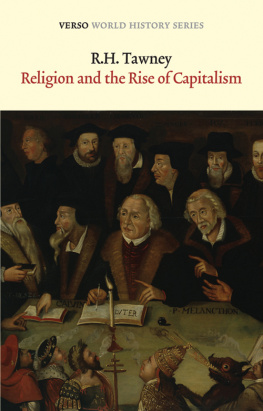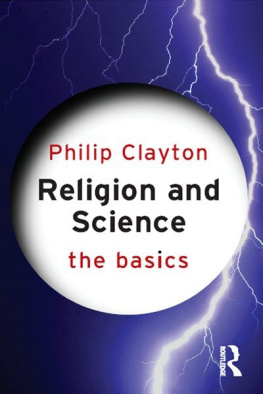
Pitchstone Publishing
Durham, North Carolina 27705
Copyright 2015 by Ryan T. Cragun
All rights reserved.
To contact the publisher, please email
10 9 8 7 6 5 4 3 2 1
Library of Congress Cataloging-in-Publication Data
Cragun, Ryan T.
How to defeat religion in 10 easy steps : a toolkit for secular activists / Ryan T. Cragun.
pages cm
Includes bibliographical references.
ISBN 978-1-63431-012-3 (pbk. : alk. paper)
1. ReligionControversial literature. I. Title. II. Title: How to defeat religion in ten easy steps.
BL2775.3.C73 2015
200dc23
2014042521
CONTENTS

INTRODUCTION

You know what the worst part about defeating religion is?
There are no losers.
I want to defeat religion.
What do I mean by defeat? I want to shrink religionreally fundamentalist religionto the point that it is marginalized in U.S. society. I want to make religious fundamentalists the new flat-earthersthey should be so disliked that they run to the furthest reaches of America to hide. Religious fundamentalists should be so unpopular that politicians avoid them, rather than pander to them and turn to them for endorsements. Religion will be defeated when U.S. politicians refuse their endorsements and stop intoning the pandering platitude, And may God bless the United States of America. Religion will be defeated when the media considers fundamentalists so extreme that they are cut off and provided no platform to voice their views and instead are targeted for ridicule. Religion will be defeated when people are too embarrassed to admit in public that they believe the earth is 6,000 years old. Religion will be defeated when no one tries to convert anyone else to his or her supernatural belief system. When the last strands of legitimacy religious fundamentalists have in society have been severed, religion will have been defeated. I dont imagine all religion will ever be gone, but Ill keep fighting religion until it has very little influence on politics, widespread social values, the media, science, sexuality, economics, charity, education, gender relations, and even federal holidays.
Im actually not opposed to liberal religion, which tends to be accepting of science and modern human values. If people still find value in believing in things that cannot be proven to be true but also cannot be proven to be false, thats fine. Many people who try very hard to base their decisions on scientific findings, critical thinking, and logic still hold some beliefs that cannot be proven true or false (e.g., that someone loves them), and that will likely always be the case. But I am opposed to fundamentalist religion, religion that accepts scripture as literal, that rejects scientific findings that run counter to scripture, and that views the world as wholly black and white or good and evil. Fundamentalist religion is the type of religion Id like to see defeated.
That religion could hypothetically be defeated without a calamitous collapse of society illustrates an important and very noteworthy characteristic of religion: religion is not necessary for society. Sociologists have been studying religion for over 150 years, and one of the earliest conceptualizations of religion was in terms of its functions for society. Religion can serve any or all of the following functions: to teach morality, to justify the right of the leaders of the society to rule, to justify oppression, and to reinforce group boundaries, among others. However, religion is not required for any of these functions. Morality can be based in secular philosophy. The right to lead can be based on an implicit or explicit social contract. Oppression has also been justified on racial, ethnic, gender, and sexual lines (though, of course, it shouldnt be justified or even exist). And there are plenty of groups to which one can belong that can reinforce group boundaries. Regardless of the functions of religion for society historically, there is no reason to believe religion is, today, necessary for society. And this isnt just an exercise in theory; there are a number of countries where religion is so substantially diminished in both existence and importance that it may as well be nonexistent (e.g., Estonia, Hungary, China, Vietnam, Finland, Sweden, Denmark, etc.). In short, from both theoretical and empirical perspectives, religion can be argued to be unnecessary for society.
Since religion is not necessary, you might then wonder, is religion desirable? I have mixed feelings on this one, since there are some reasons to think that religion is not a universally negative phenomenon. As a skeptical atheist and secular humanist, I directly benefit from religion in only one way: it is the primary focus of my research and therefore helps to justify the existence of my job. But if religion were defeated, I would have no problem changing the focus of my research to some other sociological phenomenon. Thus, for me, personally, religion is not desirable. Certainly others see religion as desirable and many people believe that religion is a net positive for the world. That is a complicated assertion that can, with great difficulty, be evaluated (though there is inherent subjectivity in doing so). I have attempted to do just that in a previous book, What You Dont Know about Religion (but Should). In that book I found that, depending on the characteristics one desires in people and society, fundamentalist religion is absolutely not beneficial for humanity. However, I also concluded that certain forms of religionliberal, nonliteralistic, modern, and egalitarian versions of religionare not particularly harmful to society and may, in some ways, be beneficial. If someone wants to be religious today, liberal religion is the least harmful way to be so. This suggests, then, that religion is not necessary and fundamentalist religion is definitely not desirable. If one were to recognize that religion is not necessary and also believe that religion is not desirable, what could one do to bring about its defeat?
This question occurred to me on my way to a conference aboutof all thingsreligion! In the fall of 2012, I was on a plane traveling to the annual meeting of the Society for the Scientific Study of Religion. I was reading the feature article in an issue of Wired magazine about apocalypses or threats that might dramatically change the entire world. The article, quite cogently, illustrated that these apocalypses were extremely unlikely. The end of the world rhetoric must have triggered something in my brain, which is often ruminating on religion. The thought that flashed into my mind was, Could social science be used to defeat religion? That was almost immediately followed by my own counter argument, Well, yes, but why would you want to even consider that? You dont believe all religion is bad. But I couldnt get the thought out of my head. So, I reframed it to make it more palatable. Hypothetically, if I wanted to defeat religion and had the power and influence to substantially change the necessary aspects of the social world, how would I go about it? A variety of steps or changes to society came to mind. Those steps form the chapters of this book.
When I counted the steps and realized I had assembled ten, I couldnt help but think of another famous ten-step plan. I am referring, of course, to the ten-step plan of the revolutionary social theorist Karl Marx (with Friedrich Engels), who outlined ten steps to convert a capitalist economic system and government into a communist one. I have a great deal of respect for Marx as a social theorist, but my hypothetical steps arent nearly as lofty in their aim as were his. He wanted to change the economy. My hypothetical steps would be geared toward defeating an already weakening element of societyreligion.
Next page
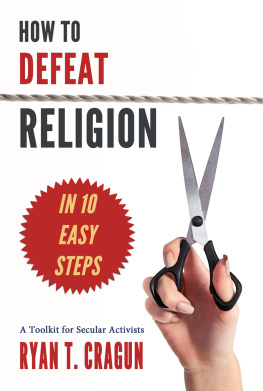
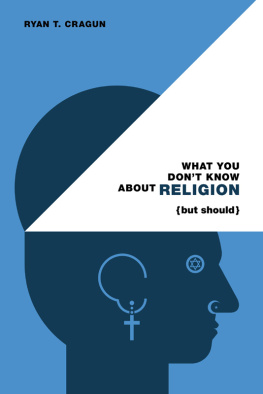

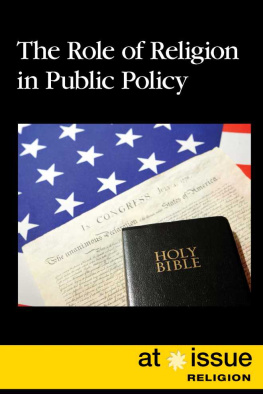
![Blackford - Freedom of religion [and] the secular state](/uploads/posts/book/167779/thumbs/blackford-freedom-of-religion-and-the-secular.jpg)
